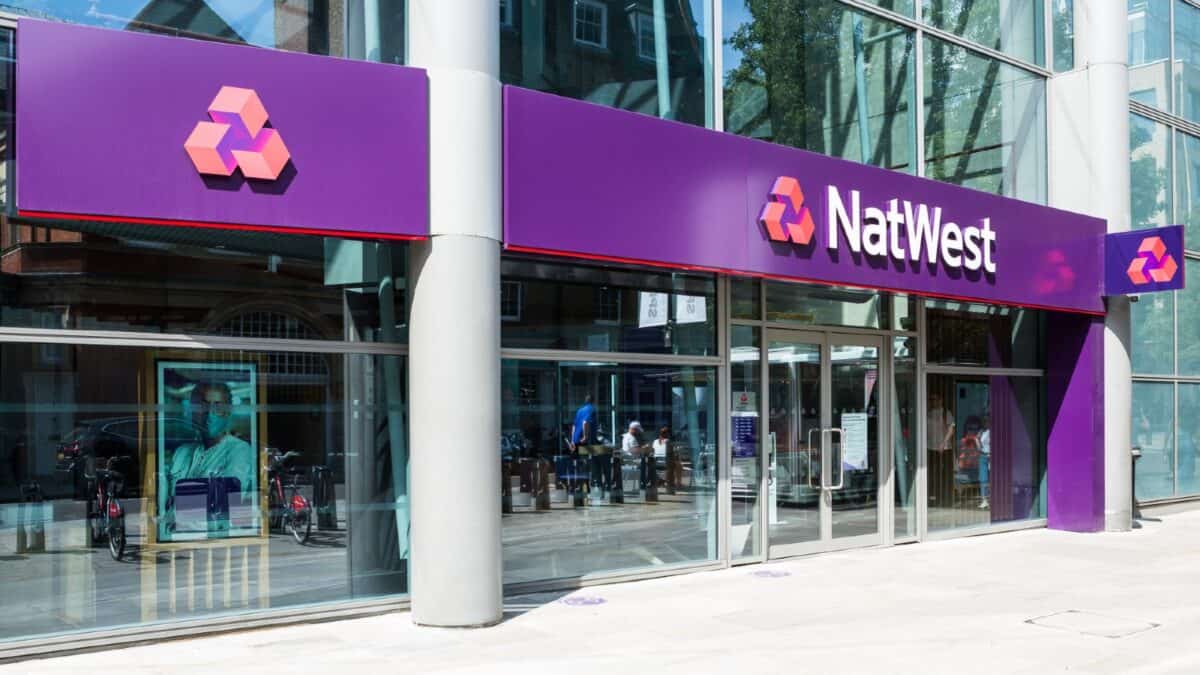
Image source: NatWest Group plc
NatWest (LSE: NWG) shares climbed 5% as markets opened this morning after positive Q3 results that beat estimates. At £3.80, the price is now the highest it’s been since mid-2015.
With a 26% rise in third-quarter profit, the results indicate stable financial performance. The bank saw slight dips in net interest income due to lower interest rates. However, it offset this with cost-control measures and solid asset quality, leading to better-than-expected revenue growth.
Pretax operating profit was expected to reach £1.5bn but achieved £1.7bn, up from £1.3bn a year ago. Subsequently, the bank’s increased its forecast to achieve a return on tangible equity (RoTE) from 14% to 15%.
It also raised its annual income forecast by 2.8%, from 14bn to 14.4bn, citing slower-than-expected interest rate cuts.
Its loan impairment charge rose from £229m in Q3 2023 to £245m this quarter.
Investment case
NatWest is the fourth largest bank in the UK by market-cap, with a focus on retail and commercial banking. The share price declined through most of 2023 in the face of ongoing macroeconomic challenges like rising inflation and interest rates.
But things have improved significantly this year, with the share price gaining over 100% since late October 2023. Naturally, its dividend yield has reduced slightly in line with the growth. However, it’s still at a decent 5%, giving the stock a good combination of income and growth potential.
Since reinstating dividends in 2019, they’ve increased from 5.5p to 17p at an average rate of 26% a year. The current price-to-earnings (P/E) ratio is 7.5, suggesting the stock might be undervalued but may also indicate uncertainty about future earnings growth.
Return on equity (ROE) is 12.28%, indicating strong profitability.
Risk remains
NatWest’s still recovering from the government bailout of 2008, back when it was still under the RBS name. The lingering effects of the bailout have made it difficult for the stock to find favour among investors.
Since 2008, the government has managed to reduce its stake from 84% to 16%. With performance improving, it’ll probably reduce this completely in the coming years, giving the bank more freedom to pursue investment opportunities.
This July it also revealed plans to purchase a £2.4bn mortgage book from Metro Bank, increasing its exposure to the housing market. All these factors could introduce volatility to the price.
On top of this, NatWest’s very exposed to economic conditions. Rising interest rates and inflation impact both its lending portfolio and customer behaviour. Not to mention the stifling regulatory environment in the UK which has only grown stricter this year.
My thoughts
After selling my shares in August, NatWest’s now the only one of the top four major UK banks that I don’t have a stake in. On reflection, the sale may have been premature. Looking at today’s data, it seems it could have more growth potential than I anticipated.
With my portfolio already heavily weighted towards the financial sector, I don’t plan to buy the shares again today. But I may rebalance back into NatWest at a later date — depending on how HSBC‘s restructuring plans pan out!













